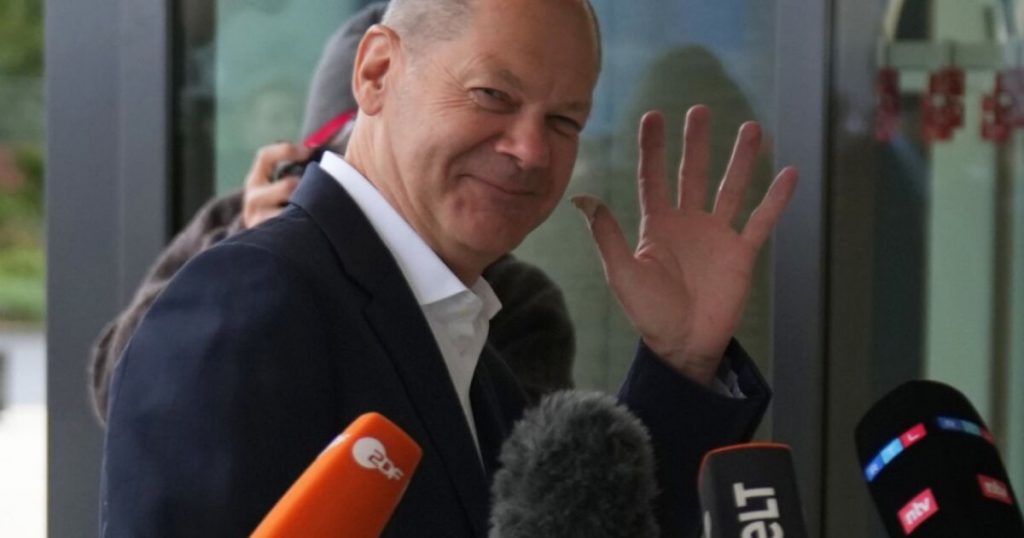The SPD chancellor’s candidate, Olaf Schulz, has shown confidence after several rounds of exploration in the possibility of forming a traffic light government with the Greens and the FDP before Christmas. “The measurements are taking place in a very good and very constructive atmosphere,” the vice chancellor said in Washington on Wednesday. That is why he is sure that the SPD, Greens and FDP project can be achieved. “We have a new government before Christmas,” Schultz said.
On Wednesday, the SPD, the FDP, and the Greens debated in a smaller circle, as they were called in party circles. SPD general secretary Lars Klingbeil told RTL and NTV’s “Early Start” that the “ambitious claim” is to get things done quickly now. On Friday they gather in a large group. Our goal next is to put something on the table.
The goal is to agree on the decision-making basis for coalition negotiations by Friday, which summarizes the outcome of the negotiations so far, said FDP General Secretary Volker Wising. Negotiators from the two sides then want to present this paper to their committees and make a recommendation for further action.
After the exploratory rounds on Monday and Tuesday, the General Secretaries of the Social Democratic Party and the Free Democratic Party as well as the Federal Director General of the Greens must put what was negotiated on paper. The background is that Schulz, as Germany’s current finance minister, is attending the G-20 finance ministers’ meeting in Washington on Wednesday and Thursday.
The deputy leader of the Green Party in the Bundestag, Agnieszka Bruger, sees the exploratory talks at a crucial point. “In the past two days, we have made great strides together again,” she said on Wednesday on the Schönen Morgen program broadcast on broadcasters of the Berlin-Brandenburg radio station.
Brugger is part of the expanded exploratory team for the Greens. It was now a matter of laying a solid foundation, she said. “Even creative solutions need time, which is why on Friday we will know what happens next.” You didn’t want to say anything about the individual content. However, after the conversation the day before, it became visible and noted: “We have taken several great steps together, bridges have been found, and yet everyone has made it clear that not all the difficult issues have been fully negotiated now. And the coalition negotiations have been abandoned.”
Klingbeil defended silence about the situation. Now the issue is not just about exploring the similarities and where the differences lie, he told RTL and NTV broadcasters Early Start, “it’s also about building trust.” “What shapes us a lot at the moment is the Jamaica negotiations in 2017, where we saw: everything was publicly documented and publicly commented on — points of disagreement, similarities,” Klingbeil continued. This “ended up destroying a lot of trust”. “And if this government is to work, trust is an essential building block.”
The Union, the Free Democratic Party and the Greens negotiated a so-called Jamaica coalition in 2017 – but the talks ultimately failed. During ongoing explorations by the Social Democratic Party, the Green Party and the Freedom and Justice Party, negotiators agreed not to disclose the details of the negotiations.
Parallel to the traffic light talks, the Greens and the Free Democratic Party have kept open the possibility of Jamaica’s alliance with the union. As a result of the election results, the SPD will be the strongest force in the Bundestag in the future.

“Food practitioner. Bacon guru. Infuriatingly humble zombie enthusiast. Total student.”








More Stories
Kyiv: Russian Kursk offensive halted
US Presidential Election: Former US Government Officials Warn Against Donald Trump's Election
Netherlands wants to leave asylum system